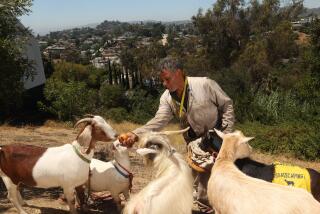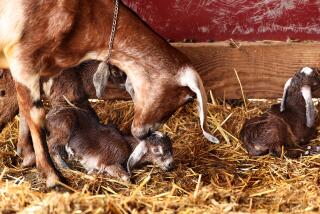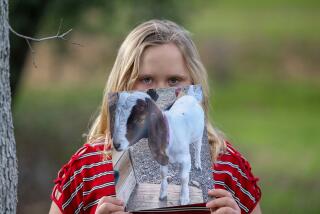Goat Games goes the distance to raise funds for animal sanctuaries
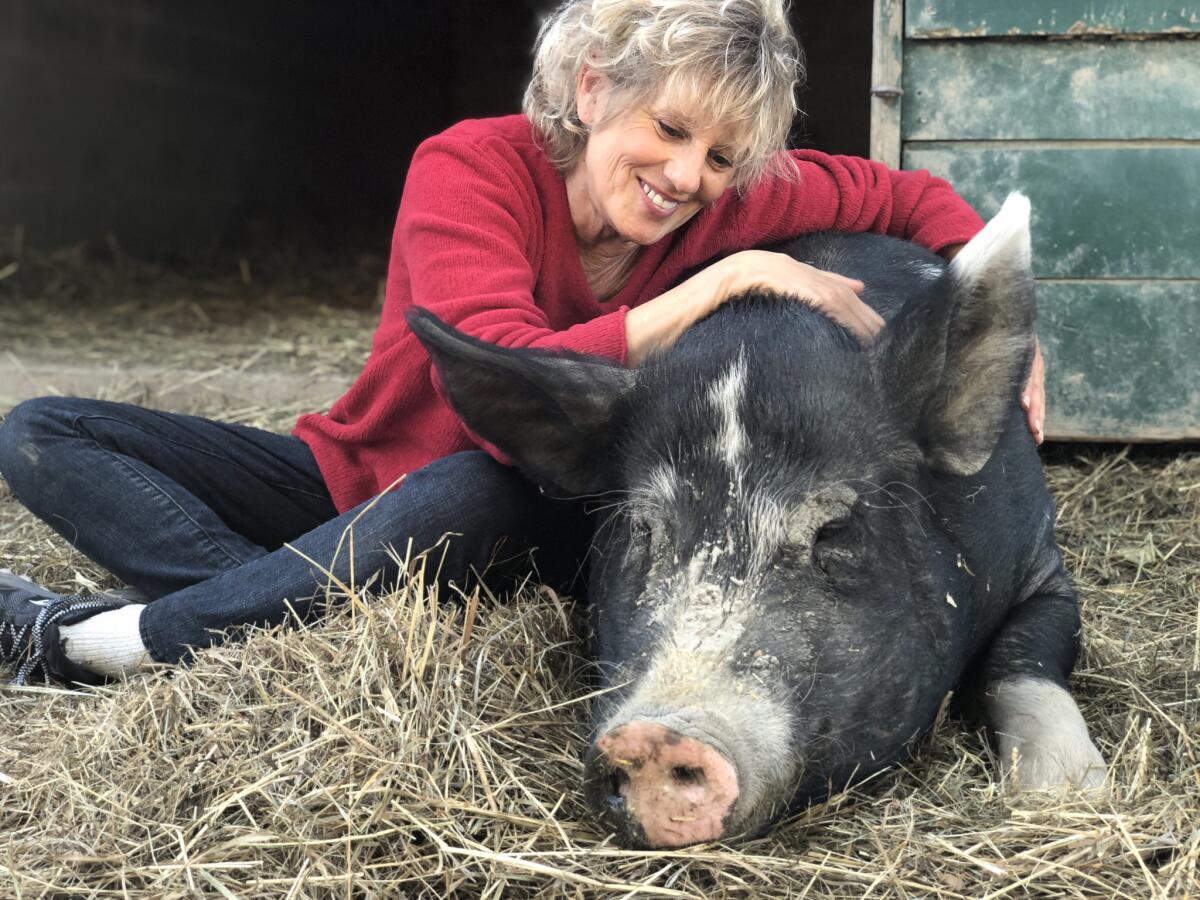
It’s not every day that an Oscar-winning actor shows up at your doorstep carrying livestock. So Jessica Due well remembers the day two years ago when Joaquin Phoenix carried a black baby calf onto her property.
“It was absolutely beautiful,” she said. “We were able to rescue a mother and her newborn.”
Due works at the Farm Sanctuary, a 26-acre facility squeezed between the Sierra Pelona and San Gabriel mountains in Acton, where animals rescued from abuse, neglect — or in the case of Phoenix’s cows, from slaughter — have been given safe haven.
The calf, whom Phoenix named Indigo, and her mother, a 5-year-old Wagyu cow he named Liberty, are two of more than 700 animals who will live out their days in Acton or at the Farm Sanctuary in Watkins Glen, N.Y. And each animal has a name and a story to tell.
But providing food, shelter, medical care, enrichment and the physical space for that many animals is expensive. And when the COVID-19 pandemic arrived in Acton about three weeks after Liberty and Indigo did, two of the sanctuary’s leading sources of income — tours and donations — dried up. So this year it is joining the Catskill Animal Sanctuary in southeastern New York and 11 other animal-welfare groups in participating in the Goat Games, a virtual event inspired by the Olympics in which human participants run, walk, hike or bike to raise money and awareness for a participating sanctuary.
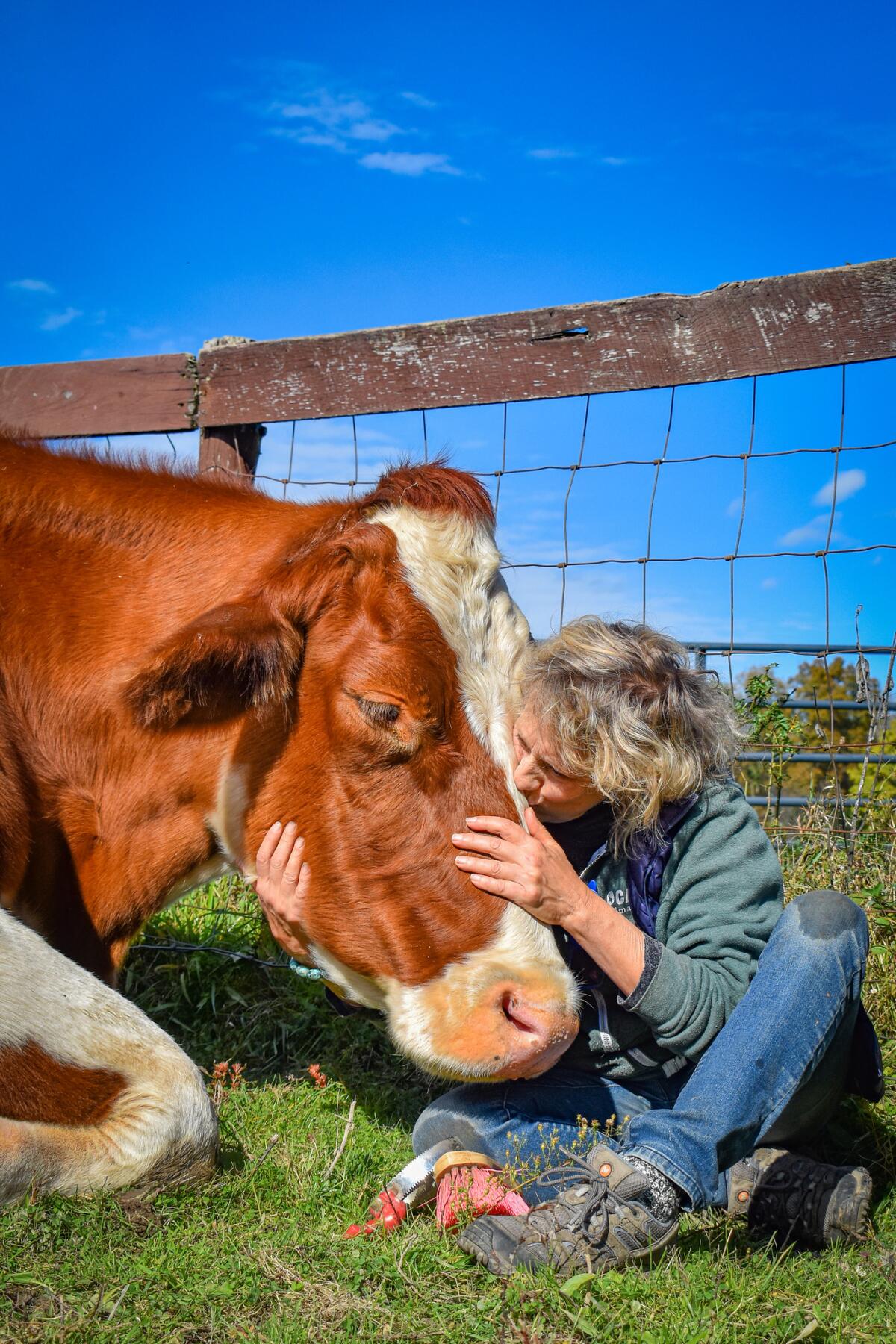
Kathy Stevens, founder and executive director of the nonprofit Catskill sanctuary, started the event in August 2020, staging it remotely the same month the postponed Tokyo Olympics were scheduled to be held. The Catskill sanctuary was the only participant that year and it raised more than $42,000 from supporters who solicited donations for each mile they ran, hiked, biked or swam.
“You know, 2020 sucked for everybody,” said Stevens, whose facility operates on an annual budget of just more than $2 million. “Fundraising bottomed out for so many nonprofits and so many businesses went out. So we looked for a way we thought is different, is unique. Something fun.
“But that didn’t negate the urgency of the work because sanctuaries around the country are literally saving the lives of thousands of animals every year. We’re the place where animals most of society considers food get to know what love feels like.”
The Goat Games, which resumes Aug. 12-15, raised more than $217,000 for 10 sanctuaries last year when a real Olympian, world record-setting track cyclist Dotsie Bausch of Irvine, a silver medalist in 2012 in team pursuit, was the sixth-most-prolific individual fundraiser.
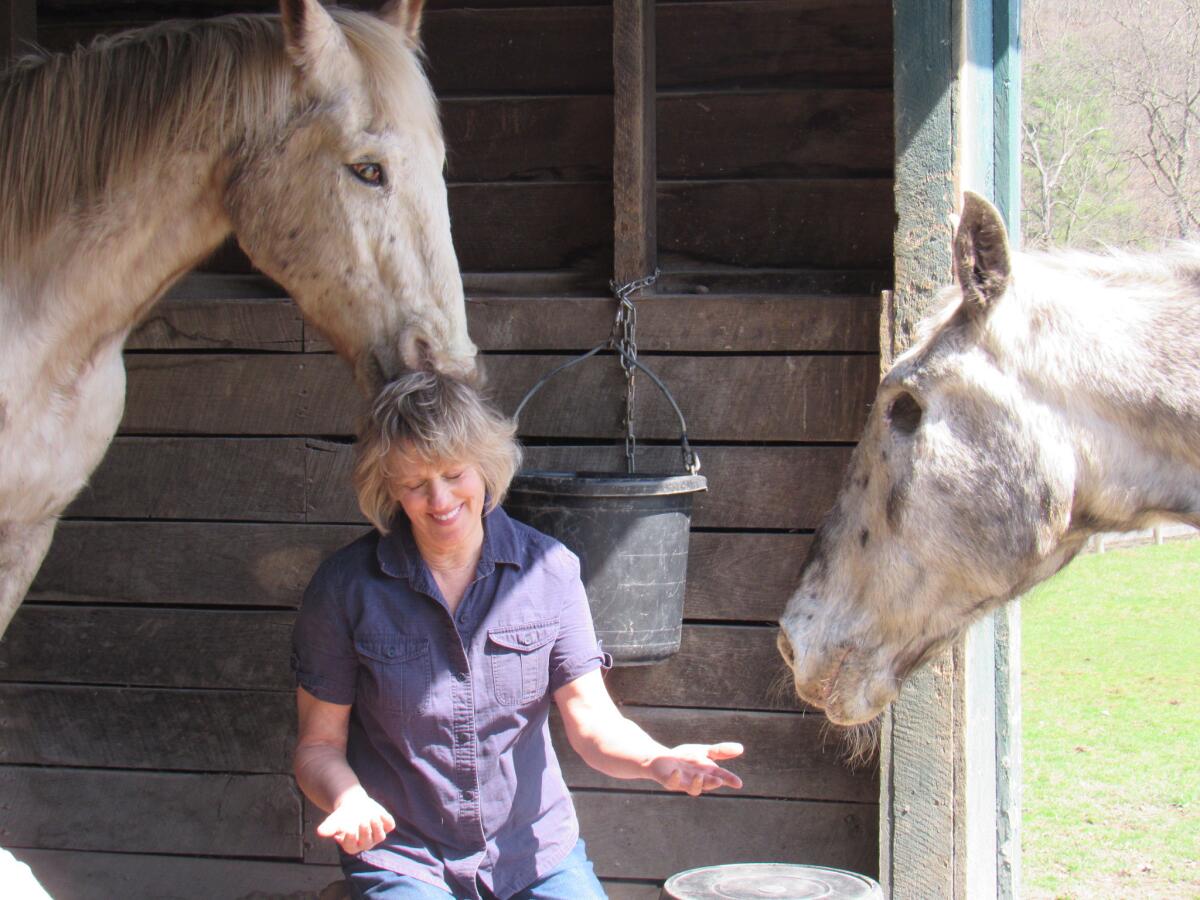
As the pandemic has eased, so has the financial situation at many of the participating sanctuaries, from the River’s Wish Animal Sanctuary in Spokane, Wash., to the Little Bear Sanctuary in Punta Gorda, Fla. But things aren’t completely back to normal, and lives are still at stake, says Stevens, who turns away desperate animals her facility can’t afford to take for lack of resources, whether space, staff or money.
“You have to say no all the time. It costs a lot of money and requires a lot of staff when you take in a bunch of sick cows or a bunch of sick horses. That’s gut-wrenching,” said Stevens, whose 150-acre sanctuary houses more than 200 rescued animals, including an old blind horse named Buddy, more than 50 goats and Tucker, a 2,500-pound steer.
“We’re doing the greatest good for the greatest number. And sometimes doing the greatest good means saying no.”
Farm Sanctuary, the country’s first farm animal sanctuary, was co-founded in 1986 by Gene Baur, an author and animal rights activist who has long opposed factory farming and advocated for a more just and respectful food movement. It joined the Goat Games this year because it, too, has felt the financial pinch that resulted from COVID.
For the record:
12:39 p.m. Aug. 1, 2022An earlier version of this article identified the marketing director of Farm Sanctuary as Josh Murray. The correct name is Josh Mumm.
“We’ve been hit hard by that,” said Josh Mumm, the director of marketing for Farm Sanctuary. “We love bringing people to the sanctuary. It’s one of the most powerful experiences people can have. [But] we had to cancel a lot of in-person events.
“This is a way of doing an event, a remote event, that everybody across the country can participate in.”
Mumm said the residents who wind up at the sanctuary are often survivors of accidents, natural disasters or cruelty and abuse cases, in which local law enforcement have had to step in to rescue the animals.
Others are simply surrendered by their owners.
“We do have farmers who have a change of heart,” he said. “There may be an animal they bonded with that they decide they cannot, in good conscience, send to slaughter. So they’ll look for a place to give them a home.”
That’s how Phoenix’s two cows wound up there. When Anthony Di Maria, president and CEO of the Manning Beef slaughterhouse in Pico Rivera, learned that a cow had given birth, he refused to separate the mother and baby, a common industry practice, and instead wanted the animals sent to a sanctuary. Phoenix, a longtime animal rights activist, stepped in to help arrange the move and two days after winning a best actor Oscar for “Joker,” he was lifting a 65-pound calf out of a trailer.
“They’re the cutest,” Due, Farm Sanctuary’s senior director of animal care and rescue, said of Liberty and Indigo. “They have other cow friends they have bonded with and are thriving here.
“It’s their home.”
To participate in the Goat Games or to learn more, go to www.thegoatgames.org
More to Read
Sign up for Essential California
The most important California stories and recommendations in your inbox every morning.
You may occasionally receive promotional content from the Los Angeles Times.

